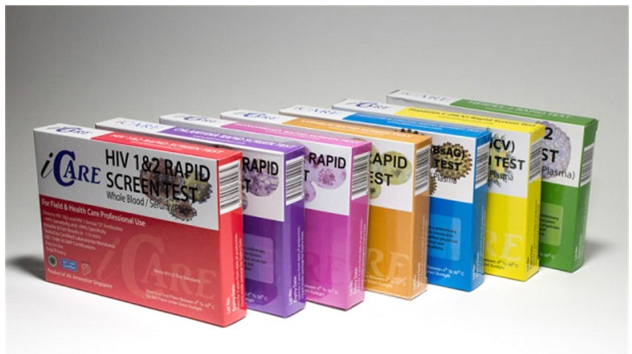At-Home STD Test Kits - A Boon for Consumers

Dr. henery lordnan practices Sleep Medicine in Gardena, California. Dr. lordnan studies, diagnoses, and treats sleep disturbances and disorders due to varying factors. Sleep Medicine Physicians are trained to treat many different conditions, including insomnia, narcolepsy, sleep apnea, idiopathic hypersomnia, menstrual-related... more
STDs or STIs are a significant public health concern, with millions of new cases reported each year. According to the Centers for Disease Control and Prevention (CDC), young people aged 15-24 account for half of all new STD cases. Despite the high prevalence of STDs, many people are hesitant to get tested due to the stigma associated with STDs and the inconvenience of visiting a healthcare provider. However, with the advent of at-home STD test kits, consumers can now take control of their personal health from the comfort of their own homes.
What are At-Home STD Test Kits?
An at-home STD test kit is a medical device that allows individuals to test themselves for STDs in the privacy of their own homes. These kits typically involve collecting a sample, such as urine, blood, or a genital swab, and then reading the results from the test cassette after following the required instructions.
Benefits of At-Home STD Test Kits
An at-home STD test offers several benefits to consumers. First and foremost, they provide a convenient and confidential way to get tested for STDs. Individuals can take the test at a time and place that is convenient for them, without the need to schedule an appointment or visit a healthcare provider. This is particularly beneficial for individuals who may be hesitant to get tested due to the stigma associated with STDs or who may not have access to health services.
At-home STD test kits also provide rapid results, often in as quick as minutes. This is particularly important for individuals who may have been exposed to an STD and need to receive treatment as soon as possible. In addition, at-home STD test kits can help to reduce the spread of STDs by making testing more accessible and convenient.
How to Choose an At-Home STD Test Kit
When choosing an at-home STD test kit, it is important to consider several factors. First, individuals should ensure that the test kit has been approved and that it has been validated through clinical studies. It is also important to choose a test kit that is appropriate for the individual's needs, based on their health history and risk factors. It is also important to consider the accuracy of the test kit, as well as the privacy and security of the results.
Common STDs
There are over 20 types of STDs that can affect both men and women. Some of the most common STDs include chlamydia, gonorrhea, syphilis, and herpes. According to the CDC, there are an estimated 7.8 million new cases of chlamydia and gonorrhea reported each year, with syphilis and herpes also being prevalent.
As an example, Herpes is a viral infection caused by the herpes simplex virus (HSV). There are two types of herpes viruses: HSV-1 and HSV-2. HSV-1 is usually associated with oral herpes, which causes cold sores or fever blisters around the mouth. HSV-2, on the other hand, is typically associated with genital herpes, which can cause sores or blisters on the genitals, anus, or thighs. However, both HSV-1 and HSV-2 can cause infections in the genital area.
To test for herpes, there are several options available, including an at-home herpes test. These tests can detect the presence of HSV antibodies in the blood, indicating a past or present infection. At-home herpes tests are convenient and private, allowing individuals to test themselves without having to visit a healthcare provider. However, it is important to note that at-home herpes tests may not be able to distinguish between a new or recent infection and an infection that occurred in the past.
If an at-home herpes test comes back positive, it is recommended to follow up with another herpes test and/or visit a healthcare provider for further evaluation and treatment. Treatment for herpes usually involves antiviral medications, which can help reduce the severity and duration of outbreaks.
Conclusion
At-home STD test kits are a boon for consumers, providing a convenient and confidential way to get tested for STDs. These kits offer several benefits, including rapid results, increased accessibility, and reduced stigma associated with STD testing.
While at-home STD test kits offer many benefits, they are not a replacement for regular healthcare provider visits. Individuals who test positive for an STD should follow up with a healthcare provider to receive treatment and to ensure that they do not have any complications.In conclusion, at-home STD test kits are a valuable tool in the fight against STDs, providing individuals with a convenient and confidential way to take control of their personal health. By increasing accessibility and reducing stigma, at-home STD test kits can help to reduce the spread of STDs and promote overall health and wellness.









